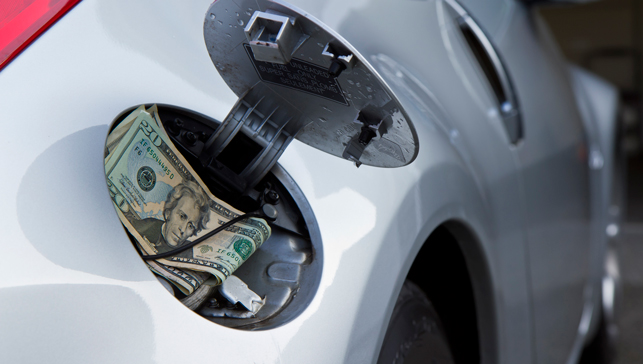There has been much speculation on Right by the Bay and elsewhere about how Gov. Gavin Newsom will address surging state tax revenue to meet the requirements of the so-called Gann Limit.
Newsom promised in his 3-hour marathon Jan. 10 budget press conference that details about potential tax relief for Californians would be forthcoming in his May Revise budget proposal.
However, Newsom unveiled one unexpected proposal to lower the tax burden of Californians with his gas tax proposal. According to the Sacramento Bee, he “proposed suspending the gasoline and diesel fuel tax inflation-related increases expected in July.”
The Bee also reports that “the scheduled increases in 2023 and 2024 could also be delayed ‘should economic conditions warrant it.’”
The Newsom budget plan estimates that on July 1, 2022, rising inflation would push up the gas tax by about 5.6 percent. That hike would be suspended under Newsom’s proposal.
With gas prices soaring past $5 per gallon in most of California, will motorists be thankful to Newsom for shaving a few cents off gas taxes or will they demand more relief?
After all, Californians pay the nation’s state highest gas taxes at 67 cents per gallon, with federal excise taxes accounting for another 18 cents per gallon.
Drivers struggling to pay for gas are naturally wondering what more can state government do to lower gas prices. Don’t expect much.
For starters, PRI’s research has documented that state energy mandates including Cap-and-Trade and the Low Carbon Fuel Standard drive up California gas prices to the nation’s most expensive. Liberals at the State Capitol will surely reject any effort to reform or suspend these mandates out of hand.
Some, including Central Valley Democratic Congressman Josh Harder, have called for further reductions in the gas tax. Republican Assemblyman Kevin Kiley has gone a step further, proposing Assembly Bill 1638 to suspend the gas tax for 6 months in response to skyrocketing prices.
In his PRI study “Nickel and Dimed,” Michael Thom argues that the gas tax should be permanently scrapped, replaced with a mileage fee that he argues is fairer and more efficient for funding transportation projects.
Sacramento’s spending lobby will surely howl at any effort to lower the gas tax as proceeds from the gas tax are used to pay for transportation projects around the state. However, not all of the money goes to road repairs as voters intended.
PRI’s Kerry Jackson has documented that, “it took the state only a matter of months (in 2017 after the SB1 gas tax increase) was passed and signed to move motor fuel tax revenues to the California Department of Food and Agriculture, the state Department of Parks and Recreation, the General Fund, and local law enforcement.” This is in addition to millions more found by the nonpartisan State Auditor’s office to have been wasted or misspent by CalTrans in recent years.
Reason’s Adrian Moore notes in his chapter in PRI’s Saving California book that poor policy by state officials over the years has resulted in the inefficient use of billions earmarked for transportation infrastructure. “Long-term thinking, planning and prioritizing,” he writes, should be at the top of the agenda to ensure we’re not just throwing money at projects in a way that doesn’t stretch dollars to their fullest.
Congressman Harder notes that Washington, DC will be spending more to California for transportation infrastructure projects under the Build Back Better plan, in addition to Newsom’s own plan to increase state transportation infrastructure spending outside the gas tax.
But that makes too much sense. At the end of the day, Newsom and his allies will expect Californians to be grateful for a few cents per gallon in savings that won’t make much of a dent in the nation’s highest gas prices that grow worse by the day.
Tim Anaya is the Pacific Research Institute’s senior director of communications and the Sacramento office.

